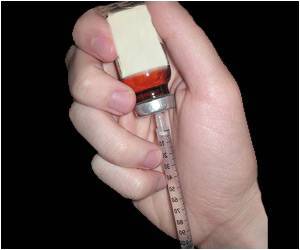A new study has revealed that a novel drug, known as KAI-9803, might lessen muscle damage from a heart attack.
A new study conducted by the Duke Clinical Research Institute has revealed that a novel drug, known as KAI-9803, might lessen muscle damage from a heart attack.
The findings of the study reflect the first time the drug has been tested in humans.KAI-9803 blocks the activity of an enzyme called delta protein kinase C that triggers cell and tissue death in the aftermath of percutaneous coronary intervention (PCI).
PCI is a set of procedures including balloon angioplasty and stent placement that clear and prop open clogged coronary blood vessels that lead to a heart attack, a process known as reperfusion.
The trial, known as DELTA-MI, was not conducted to demonstrate the effectiveness of KAI-9803, but researchers said that early data suggests it appears to be a promising compound.
Dr. Matthew Roe, a cardiologist at Duke and the lead author of the study, said that many people might not realize that the heart suffers damage at two major points in a heart attack: first, when a blockage in a coronary artery prevents blood and oxygen from getting to the heart, and then again when the patient undergoes PCI and normal blood flow is restored through reperfusion.
“We may not be able to intervene in the first stage of a heart attack, but we think there may be ways to limit damage caused by reperfusion injury,” he said.
Advertisement
Patients underwent PCI, with physicians injecting the drug directly into their coronary blood vessels during the procedure.
“We believe that bathing the area with this novel compound may block the damaging cascade of events that are triggered specifically by delta protein kinase C when blood is restored to the heart muscle,” he added.
Previous studies in animals revealed that KAI-9803 lessened damage to the heart muscle and quickly restored its pumping function.
“We designed the DELTA MI trial to find out if KAI-9803 is safe for humans, and we accomplished that goal; we did not see any serious side effects,” Roe said.
“We also found, however, many promising signs of beneficial drug activity such as lessened damage to the heart muscle and improvement in electrical conductivity in the heart that corresponded to restoration of blood flow to the heart muscle. As a result, we feel this drug has the potential to be helpful in reducing the impact of a heart attack in humans,” he added.
The study is available online and to be published in the February 19 issue of the journal Circulation.
Source-ANI
SRM/L











